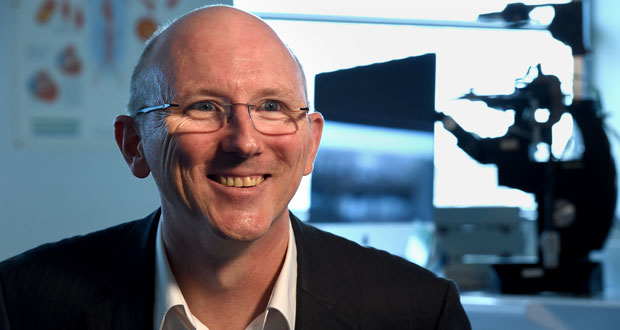Pancreatic cancer is actually four separate diseases, a new study suggests.
The international team of researchers involved said the diseases have different genetic triggers and survival rates, adding the finding could pave the way for more accurate diagnoses and treatments.
Scientists, led by professor Sean Grimmond, formerly of The University of Queensland’s Institute for Molecular Bioscience (IMB), now the director of research in the University of Melbourne’s Centre for Cancer Research, analysed the genomes of 456 pancreatic tumours to determine the core processes that are damaged when normal pancreatic tissues change into aggressive cancers.
Grimmond said the team identified 32 genes from 10 genetic pathways that are consistently mutated in pancreatic tumours and added further analysis of gene activity revealed four distinct subtypes of tumours.
The study demonstrated that pancreatic cancer is better considered as four separate diseases, with different survival rates, treatments and underlying genetics, he said.
“Knowing which subtype a patient has would allow a doctor to provide a more accurate prognosis and treatment recommendations,” Grimmond said, adding there are already cancer drugs, and drugs in development, that can potentially target the “cluster of machinery” in cells where pancreatic cancer can start.
For example, some of the strains of pancreatic cancer the team discovered are “unexpectedly associated with mutations normally associated with colon cancer or leukaemia”, for which there are experimental drugs available or in development, he said.
Others bear strong similarities some bladder and lung cancers, and Grimmond said scientists can begin to draw on that knowledge to improve treatments.
Published in the journal Nature, the study built on earlier research from the team, as part of the International Cancer Genome Consortium.
This video was first published on Pursuit. Read the original article.
Do you have an idea for a story?Email [email protected]
 Aged Care Insite Australia's number one aged care news source
Aged Care Insite Australia's number one aged care news source

